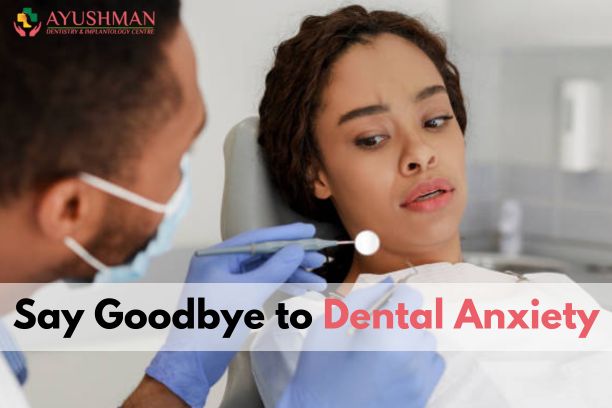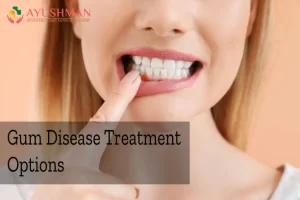Say Goodbye to Dental Anxiety: Tips for a Stress-Free Visit

Say Goodbye to Dental Anxiety: Tips for a Stress-Free Visit
Many people experience dental anxiety, which can prevent them from getting the dental care they need and lead to poor oral health. Fortunately, there are effective strategies to manage anxiety. This guide explores seven simple methods to help you overcome your fear of the dentist and prioritize your oral health. Take control of your anxiety and achieve a healthier, happier smile!
Dental Anxiety: Understanding Your Fear
Dental anxiety, sometimes called dental phobia, is a common and completely understandable fear of visiting the dentist. Many people experience this fear, often due to a combination of factors:
- Past experiences: If you had a negative dental experience in the past, it can create a lasting feeling of anxiety.
- Fear of pain: The thought of pain or discomfort during dental procedures can be a major source of anxiety.
- General healthcare anxiety: Some people experience anxiety in any healthcare setting, including the dentist’s office.
- Unfamiliar environment: The sights, sounds, and smells of a dental office can be unfamiliar and contribute to anxiety.
- Loss of control: Feeling like you can’t move or talk freely while lying in the dentist’s chair can intensify anxiety for some people.
It’s important to remember that dental anxiety is valid and affects people of all ages. Understanding the reasons behind your fear is the first step towards managing and overcoming it.
The Downside of Dental Anxiety: How It Impacts Your Smile
It can have a significant negative impact on your oral health, leading to a domino effect of potential problems:
1. Missed Appointments, Worsening Issues: When anxiety makes you avoid the dentist, crucial check-ups and treatments get delayed. This allows existing problems like cavities or gum disease to progress unchecked, potentially requiring more complex intervention later.
2. Neglecting Oral Hygiene: Anxiety may lead to inconsistent brushing and flossing, essential for maintaining good oral health. This increased neglect creates an environment ripe for cavities and gum disease to develop.
3. Beyond the Mouth: Oral health is intricately linked to overall health. Untreated dental problems can contribute to systemic health concerns, highlighting the importance of maintaining good oral hygiene.
4. A Cycle of Stress: The constant worry about upcoming dental visits creates a cycle of emotional stress that can negatively impact your daily life and well-being.
Some Effective Strategies To Overcome Dental Anxiety Permanently
Choose a dentist who understands anxiety
Choosing the right dentist plays a crucial role in overcoming dental anxiety. Look for a dentist who specializes in treating patients with anxiety, often referred to as a “gentle” or “sedation” dentist. These dentists have the following key qualities:
- Empathy and understanding: They understand the specific challenges you face and offer a supportive, non-judgmental environment.
- Calming communication: They use clear, calming language throughout the appointment to help ease your worries.
- Relaxing techniques: They are trained in relaxation techniques, such as guided breathing or nitrous oxide sedation, to manage your anxiety during procedures.
- Comfortable environment: They often prioritize creating a welcoming and comfortable office atmosphere to ease your nerves from the moment you arrive.
Communication and Collaboration: Building Trust with Your Dentist
Open and honest communication with your dentist is key to managing your dental anxiety. Sharing your fears and concerns allows them to:
- Tailor the experience: They can adjust their approach to your specific needs, explaining procedures in detail, answering questions, and providing reassurance throughout the visit.
- Accommodate your pace: They may offer extra appointment time to ensure you never feel rushed or pressured, fostering a calm and comfortable environment.
This collaborative approach helps build trust and empowers you to work together towards achieving comfortable dental visits.
Exploring Sedation Options for Enhanced Comfort
If your anxiety is significant, consider discussing sedation dentistry with your dentist. This spectrum of options offers varying levels of relaxation to alleviate anxiety during procedures. Here are some common approaches:
- Nitrous oxide (“laughing gas”): Inhaled through a mask, it induces mild relaxation while keeping you fully conscious.
- Oral sedation: Available as pills, these provide moderate relaxation while allowing you to remain responsive.
- Intravenous (IV) sedation or general anesthesia: For severe anxiety, these options may be suitable, but require careful consideration and discussion with your dentist to determine the best fit for your needs and the procedure’s complexity.
Remember, your dentist is there to help. By openly discussing your anxiety and exploring options, you can find the most comfortable and effective approach to achieving optimal oral health.
Practice Relaxation Techniques
Dental anxiety can be a hurdle, but it doesn’t have to control you. Here are some powerful tools to manage your anxiety and create a calmer dental experience:
- Deep Breathing: This simple yet effective technique calms your nervous system. Before and during your appointment, take slow, deep breaths, inhaling through your nose and exhaling slowly through your mouth. Feel the tension melt away with each exhale.
- Progressive Muscle Relaxation: Target physical tension by tensing and relaxing different muscle groups one at a time. Squeeze your shoulders, hold for a few seconds, then release completely. Repeat for other muscle groups, allowing relaxation to spread throughout your body.
- Mindfulness Meditation: Train your mind to be present in the moment. Focus on your surroundings and sensations without judgment. This technique distracts you from anxious thoughts and promotes a sense of calmness.
Practice these techniques at home to build confidence and gradually chip away at dental anxiety. Remember, you have the power to control your own experience.
Schedule Shorter, More Frequent Appointments
Instead of enduring a lengthy appointment, discuss with your dentist the possibility of breaking down your treatment plan into shorter, more frequent visits. This allows you to:
- Start small: Begin with brief check-ups or simpler procedures. This lets you gradually get accustomed to the dental environment and build trust with your dentist.
- Build confidence: As you experience successful shorter visits, your confidence grows, and you can progressively extend the duration of appointments.
This step-by-step approach helps you desensitize to the dental setting and reduces the fear associated with longer appointments. Remember, small victories lead to significant change, empowering you to conquer your anxiety and prioritize your oral health.
Bring a Supportive Companion
Facing dental anxiety can feel isolating, but you don’t have to go it alone! Consider having a trusted friend or family member accompany you to appointments. Their presence can significantly impact your experience:
- Sense of Security: Knowing someone familiar is by your side can provide a comfort blanket of support, fostering a sense of security and reducing the feeling of being alone.
- Reassurance and Encouragement: During moments of anxiety, your companion can offer calming words and encouragement, reminding you of your strength and progress.
- Distraction: Engaging in light conversation about a neutral topic can divert your attention from anxious thoughts, keeping your mind occupied and reducing the focus on the procedure.
Most dental offices are welcoming of supportive companions as long as their presence doesn’t hinder the treatment. Sharing the experience with someone you trust can significantly lessen the burden and make the process feel less daunting. Remember, you’re not alone in this, and having a trusted ally by your side can be a powerful tool in overcoming dental anxiety.









